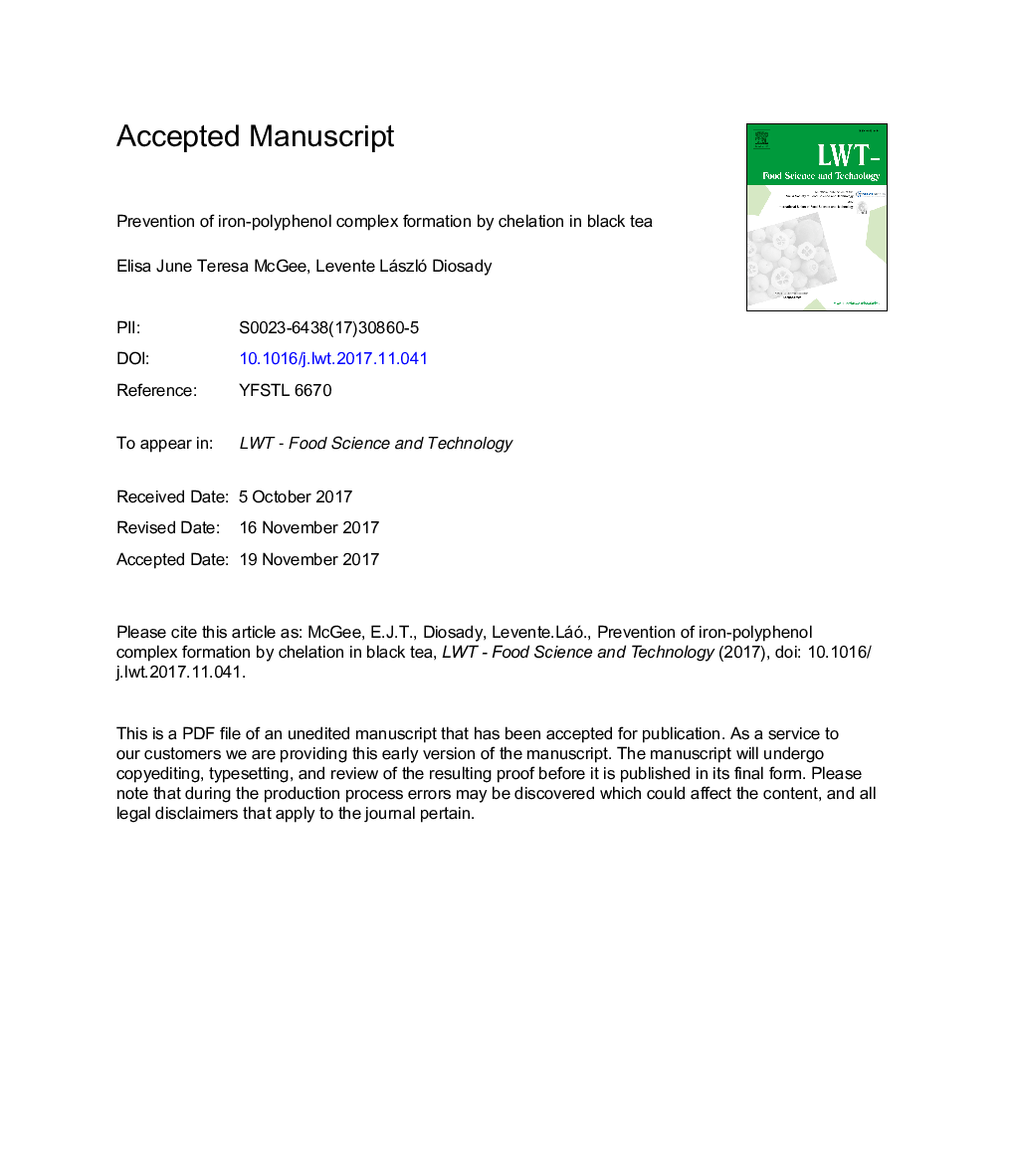| Article ID | Journal | Published Year | Pages | File Type |
|---|---|---|---|---|
| 8892100 | LWT - Food Science and Technology | 2018 | 34 Pages |
Abstract
Fortifying black tea with iron has the potential to reduce the incidence of iron deficiency in the developing world. However, maintaining iron bioavailability and visual appeal presents a serious technical challenge due to the formation of iron-polyphenol complexes. In this study we tested the validity of using competing complexing agents to prevent the formation of iron-polyphenol complexes in iron fortified black tea. Disodium EDTA was the most successful and was optimized to a 1:2 iron:EDTA molar ratio. Iron bioavailability was then confirmed by testing the amount of iron that remained soluble and unbound to polyphenol after sequential pH changes similar to that experienced during digestion. Therefore, technology based on combining iron with competing chelating agents in tea has the potential to reduce iron deficiency caused by inadequate iron intake through traditional diets.
Related Topics
Life Sciences
Agricultural and Biological Sciences
Food Science
Authors
Elisa June Teresa McGee, Levente László Diosady,
